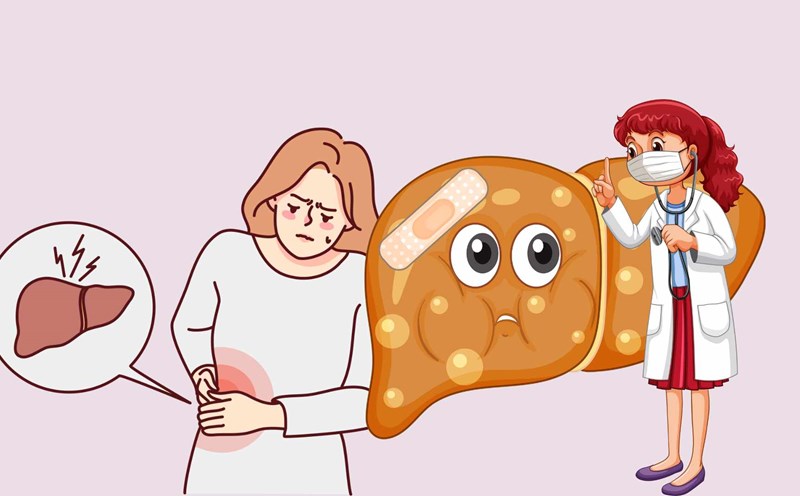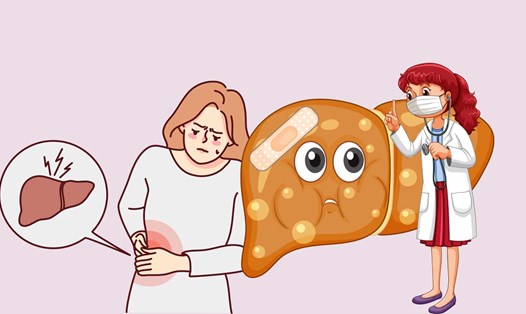According to Dr. Geetika Chopra, a comprehensive nutritionist in India, white rice can be disadvantageous for people with fatty liver, especially when eaten regularly or in large portions. White rice is a refined carbohydrate, with the bran and germ layer - the part that contains a lot of fiber, vitamins and minerals - removed. Therefore, this type of rice has a high glycemic index (GI), which can easily quickly increase blood sugar and insulin levels after meals.
When sugar and insulin levels increase continuously, the body tends to convert excess glucose into fat, especially fat accumulated in the liver and abdomen. This condition gradually leads to insulin resistance and non-alcoholic fatty liver disease (NAFLD).
In addition, white rice lacks fiber and nutrients necessary for liver detoxification and metabolism, making eating a lot of white rice less beneficial for liver health than whole grains. Although occasionally eating a small amount of white rice does not cause serious effects, regular consumption can overload the liver, increase fat accumulation and hinder recovery.
Healthy alternatives for people with fatty liver
To reduce the burden on the liver and stabilize blood sugar, people with fatty liver should replace white rice with whole grains and complex starches rich in fiber and nutrients such as:
Brown rice: retains bran and sprouts, provides B vitamins, fiber and antioxidants, helps control blood sugar and limit liver fat accumulation.
Millet: Low glycemic index, rich in magnesium and fiber, helps detoxify and reduce liver inflammation.
Quinoa: A complete protein source contains enough essential amino acids, which help balance energy and support liver recovery.
Red or black rice: Rich in anthocyanin, which helps fight oxidation and protect liver cells.
Dalia: Provides complex carbohydrates, helps stabilize blood sugar and avoid sudden insulin spikes.
Oatmeal: Rich in beta-glucan, helps reduce cholesterol, improve liver and digestive function.
Nutritional advice for people with fatty liver
Dr. Chopra offers some recommendations to help support liver treatment and recovery:
Portion control: Divide your meals, avoid eating too much and not eating late at night.
Limit refined starch: Reduce consumption of white rice, white bread and refined flour products.
Eat plenty of vegetables and fruits: Add fiber, vitamins and antioxidants to help reduce inflammation and support detoxification.
Prioritize healthy fats: Olive oil, avocado, chia seeds, flax seeds, fatty fish help reduce inflammation and improve fat metabolism.
Add lean protein: From beans, tofu, eggs, fish, lean meat to restore liver cells and maintain muscle.
Avoid sugar and alcohol: Limit sweets, sugary soft drinks and absolutely do not drink alcohol.
Drink enough water: About 22.5 liters per day, can be mixed with lemon or herbs to support detoxification.
Exercise regularly: 3045 minutes a day helps burn liver fat, improve metabolism and cardiovascular health.
Get enough sleep, reduce stress: Yoga, meditation and rest properly help balance hormones and support liver recovery.











